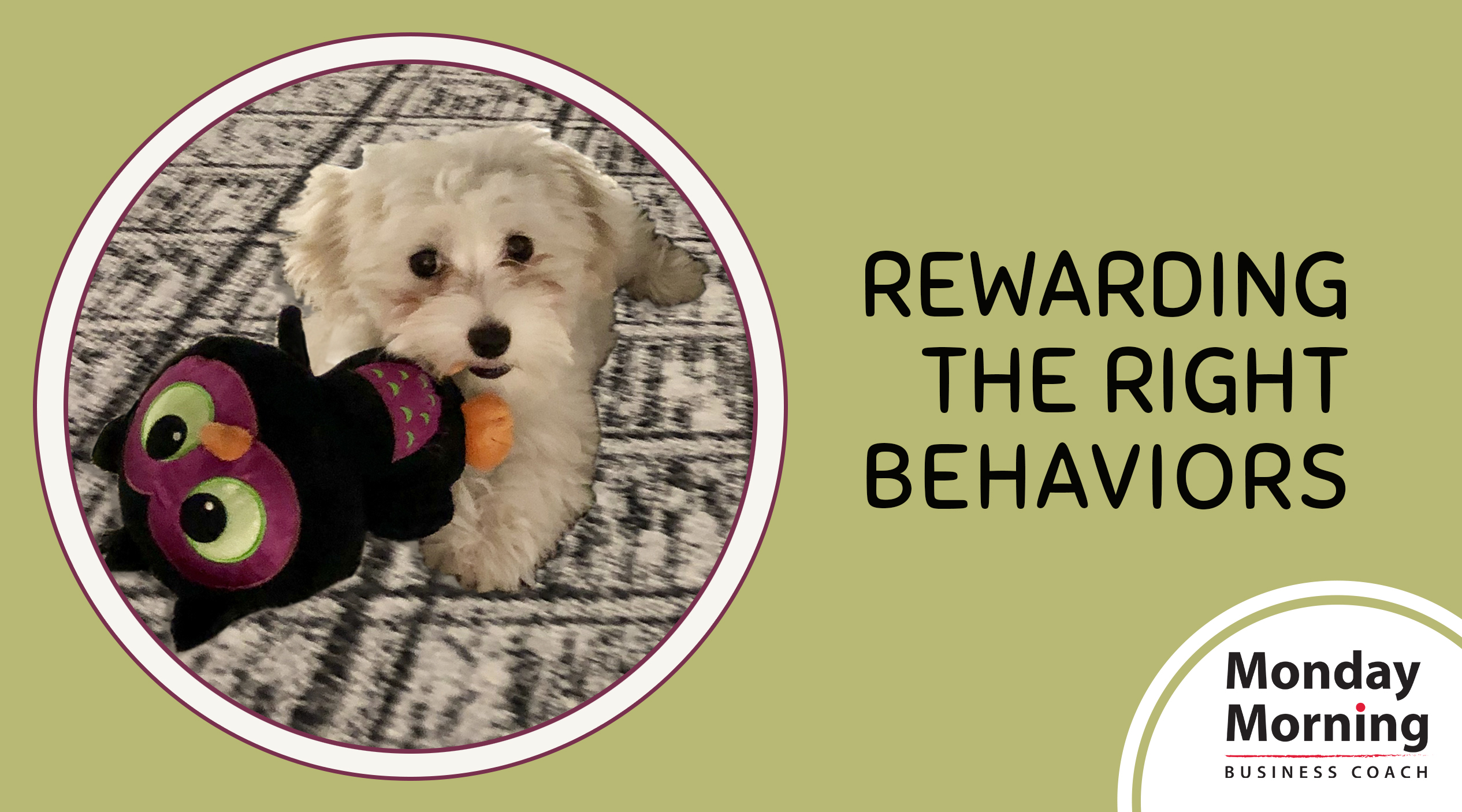Last week we started a series on What Puppy Training Can Teach You About Leading and Managing. This week we’re doing a deeper dive on rewarding the right behaviors.
If you’re like most people, you may think, “Rewarding the right behaviors – duh, of course!”
Unfortunately, rewarding the right behaviors in puppies and in people is trickier than you think. It begins with defining what, exactly, are the “right” behaviors.
Let’s look at a couple of examples to help demonstrate what makes this so hard:
Imagine coming home after work to a puppy that’s delighted to see you—jumping, wagging, and wild. You haven’t had someone this excited to see you all day!
It’s so tempting to rush in and pet her, talk to her, and get pretty energized and excited yourself. What’s better than having a puppy thrilled to see you! Right? Well . . .
Sadly, while it’s thrilling to be so loved, you’re teaching the puppy that this is how they should treat people who come in the door. Yet, if the person coming in the door is a small child, someone who is terrified of dogs, or an elder, this is not at all what you want her to do.
The “right” behavior for greeting people is for the puppy to sit and wait for them to greet her as they feel comfortable and safe. Catching puppies doing the “right” thing means defining, looking for, and shaping the behaviors that will make them a dog who is respectful and a pet who they love to get close to.
Same is true of people.
Take, for example, the new employee who is so excited about his role that he interrupts when others are speaking and consistently gets the team off track and down rabbit holes. He’s clearly trying to pitch in wherever he can. While his intentions are good, his lack of awareness about what is going on and how to contribute in ways that are helpful is hurting the team’s productivity.
Defining powerful, impactful behavior
and recognizing / rewarding it,
will help you accelerate success
in your team, department, and organization.
With puppies we can use a clicker and a treat, but with people it’s our words, recognition, and our warmth that are powerful rewards.
This week:
- Identify someone you respect and value who you’d like to see develop a new skill or approach to something.
- Get very clear in your mind about what that new approach will look like behaviorally.
- Begin to observe this person more frequently, looking for times when they either do the behavior or take actions that could lead them to that behavior.
- When you see it, say something that acknowledges them. You could say, “nicely done” or “impressive” or “that’s an approach we need more of”, then smile and walk away. Don’t add a lot of verbiage or add a “but, next time”—just recognize the “right” behavior with your words and warmth.
- Do this several more times over the next few days or week.
- See if you notice an increase in that behavior.
Remember, people don’t know what you want or expect from them unless you’re clear and provide a consistent message that they nailed it.
We recently met with a team who said to us, “We never know if what we’re doing is what our leader wants or doesn’t want, so we’ve given up trying.” Don’t let that be you!

